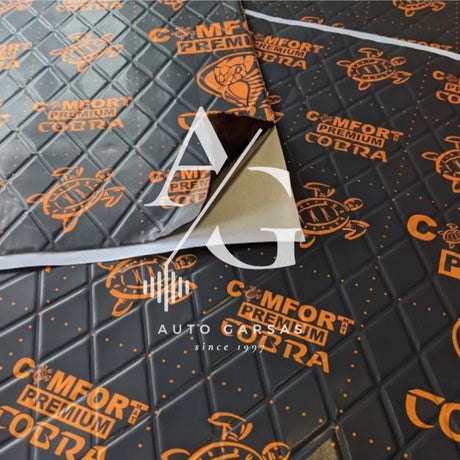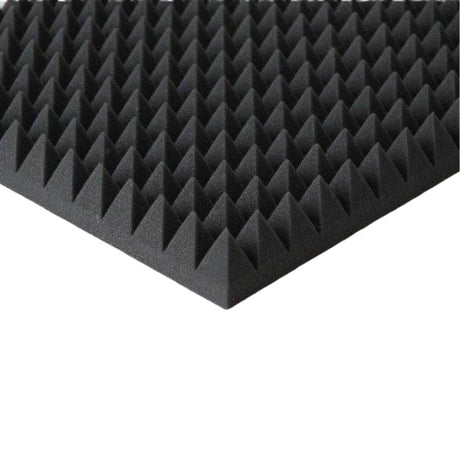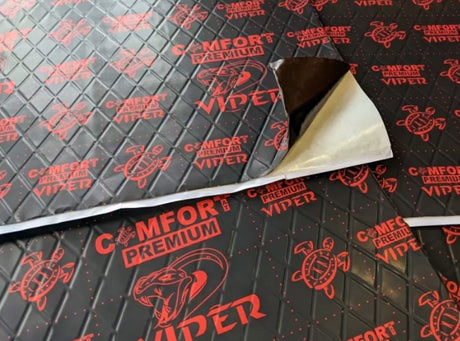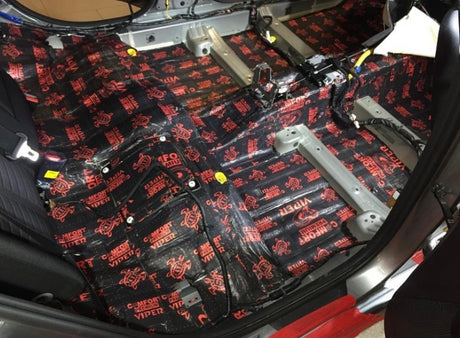Categories
- Well sold
- Alphabetical order az
- Alphabetical order za
- Price from low to high
- Price from high to lowest
- Date, from a long time to new
- Date, from young to old
FiltersFilter and sort
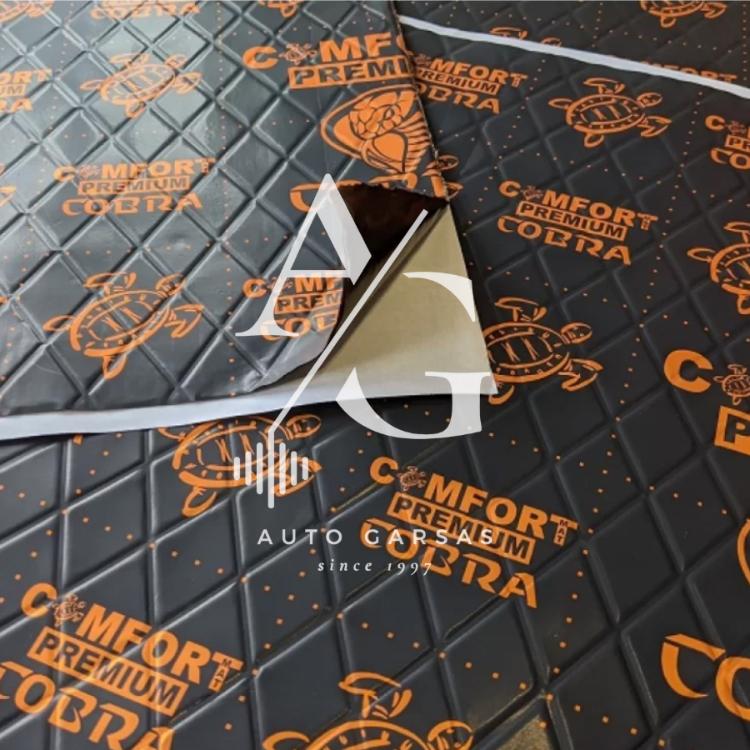
Vibration isolation
(17 products)Vibration isolation.
Vibration isolation, its purpose is to suppress resonances of flat surfaces (the so-called drum effect). Vibro insulation is usually used for this - bitumen mastic with various additives, so that this material does not harden and stop working at sub-zero ambient temperatures. This is very important when choosing vibration insulation. Bituminous sheets from cheap manufacturers - vibration insulating material - harden into stone in winter and do not perform their function, even worse when they crack and fall apart due to vibration. Autogars salon and website www.autogarsas.lt offers you quality vibration isolation materials.
How does it work? The resonance frequencies of metal, plastic, bituminous and aluminum materials are different. Therefore, when these materials are glued one on top of the other, they suppress each other, as a result of which the desired effect is obtained. The greater the thickness of such materials or the number of layers, the greater the damping effect, but it must be remembered that these materials are not light, so the weight of the car parts increases rapidly. So, if you are going to glue the trunk lid - a vibration insulating material for the car - consider that all the additional weight will have to be overcome by the gas shock absorbers of the lid so that it does not descend by itself.
Vibration insulation, the materials intended for it thicken the vibrating surfaces. Most often, it is Bitumen mixture with additives covered with an aluminum layer. After sticking such a material on the vibrating surface, the resonance frequencies of tin, bitumen and aluminum are different, so the vibration is dampened with maximum efficiency. It is recommended not to buy the cheapest and unknown manufacturers, simply because such products usually harden at minus temperatures and do not perform their function.
Vibration isolation is the process of reducing or eliminating the transmission of vibration from one surface to another. This is often achieved by using specialized vibration isolation materials that can absorb, dampen or otherwise manage vibration.
There are various reasons why you may need to deal with vibration isolation. In some cases, this may be to protect sensitive equipment from damage caused by excessive vibration. In other cases, it may be to reduce noise levels or improve the comfort of building occupants.
Vibration isolation can be important in a variety of applications, from industrial machinery and construction equipment to sensitive laboratory equipment and even homes and buildings. Reducing the transmission of vibration can help protect equipment, improve safety and create a more comfortable environment for passengers.
Vibration-insulating materials - vibration isolation - are an essential component of modern car design and are used to reduce the transmission of engine, transmission and road surface vibrations to the interior of the car. The vibration isolation material is designed to absorb, dampen or direct vibrations, providing a smoother and more comfortable ride for passengers.
One of the most commonly used vibration isolation materials in cars - vibration isolation for cars is rubber. This vibration isolation is widely used in the manufacture of engine mounts, suspension bushings and other components. Rubber is an effective vibration insulator due to its ability to absorb and dissipate energy, thus reducing the transmission of vibrations.
Another material used in cars for vibration isolation - vibro isolation for cars - is foam. This material is used for various applications such as door panels, upholstery and seats. Foam effectively reduces vibration due to its ability to compress and absorb energy.
In addition to rubber and foam, other vibration isolation materials commonly used for vibration isolation in automobiles are steel springs, fiberglass, and cork. Steel springs are used in suspension systems to absorb shock and vibration. Fiberglass is used for sound insulation because it can absorb and reflect sound waves. Due to its compressibility and ability to absorb vibrations, cork is used in a variety of applications, including gaskets and seals.
Advanced automotive vibration isolation materials such as carbon fiber and Kevlar are increasingly being used in high-end cars because they are extremely strong and resistant to vibration. These materials are also lightweight, which can help improve fuel efficiency and handling.
Overall, vibration isolation is an essential part of modern car design and plays a vital role in ensuring a smooth and comfortable ride for passengers. Car manufacturers continue to research new vibration isolation material technologies in order to improve vibration isolation and create even more comfortable and perfect vehicles.
For vibration isolation and its installation in your car or in another room, contact the consultants of the Autogars salon, or you can find vibration isolation material on the www.autogarsas.lt website.

